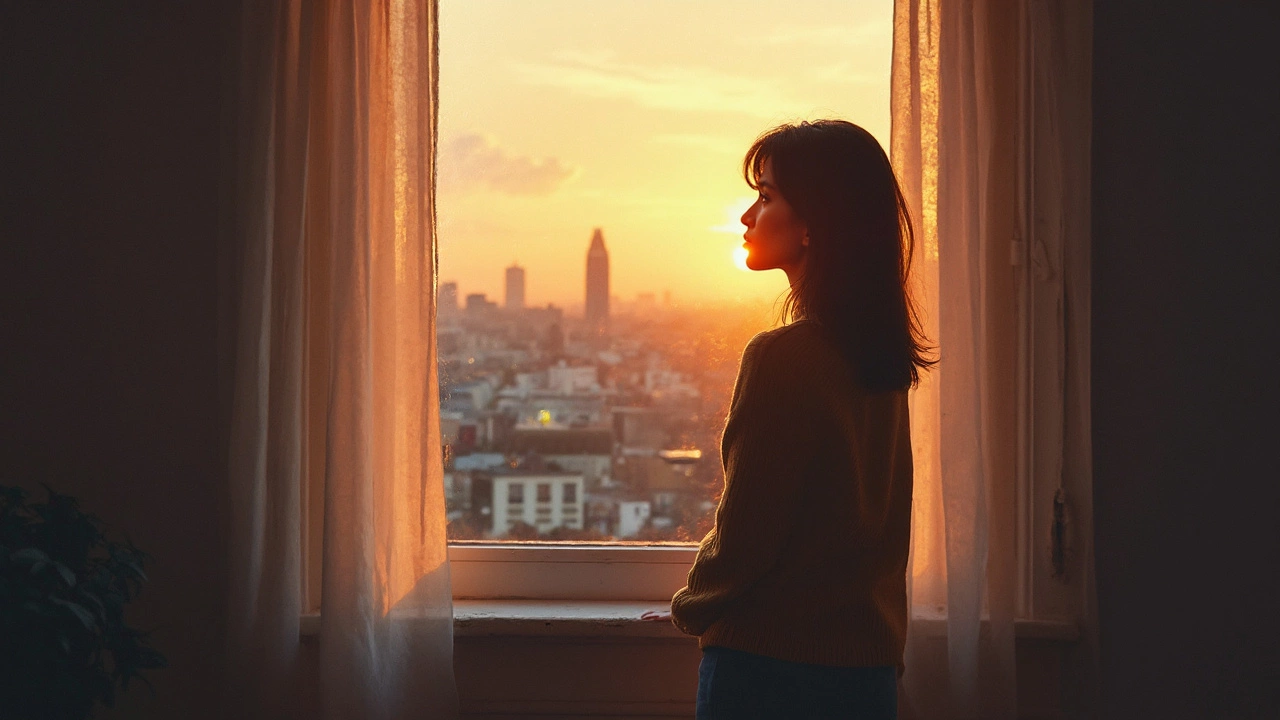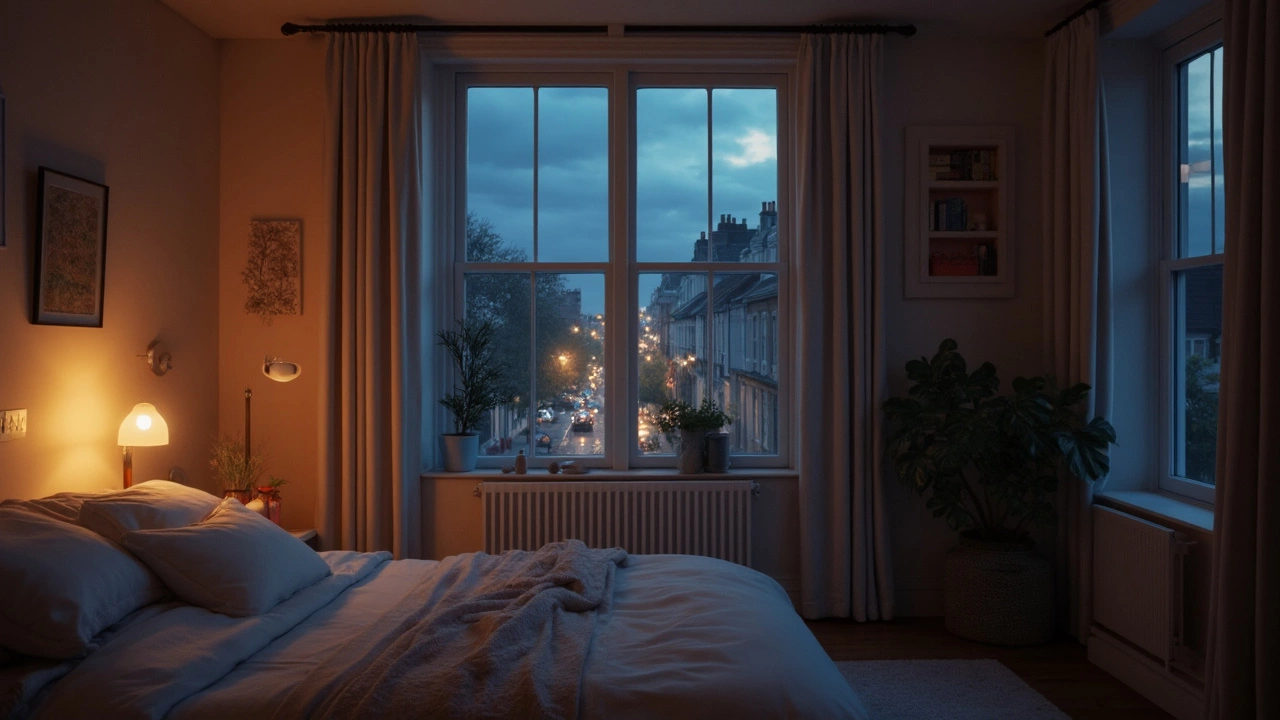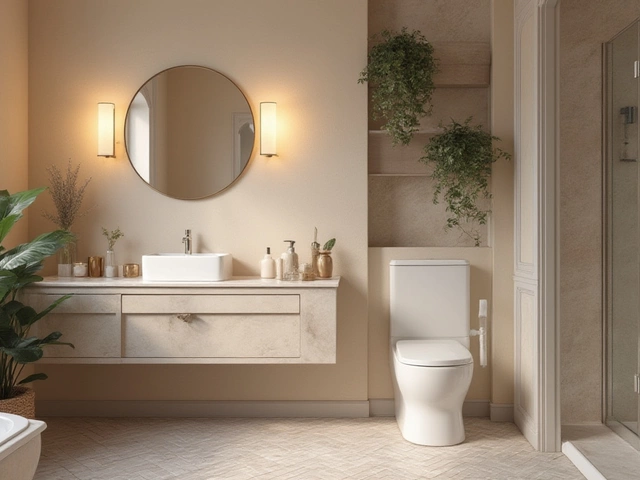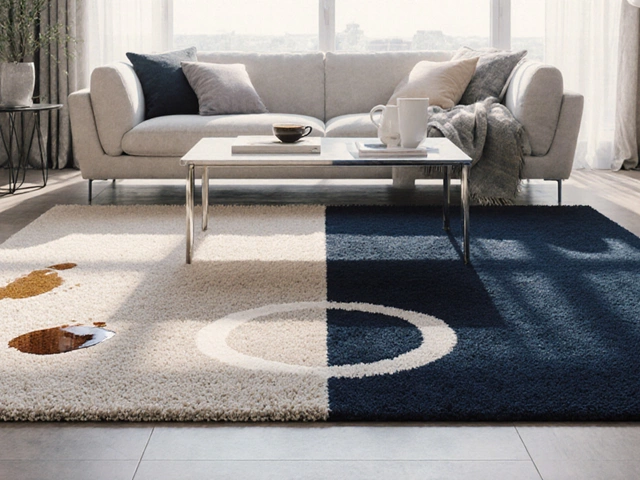Sleeping without curtains sounds like a small thing, but it can flip your sleep routine in ways you might not expect. If you’ve ever woken up at sunrise with the birds—or felt totally exposed when the streetlamp flicks on—you get what I mean. Not everyone needs blackout drapes, but ditching curtains comes with real effects you should know about.
The first thing you’ll notice? Light. Whether it’s moonlight, traffic headlights, or that neighbor who loves floodlights, sleeping with bare windows can leave you tossing and turning. It’s not just about comfort, either—light in your room messes with melatonin, which your body needs to stay asleep. And if you have kids like my daughter Solene, they might wake up at first light and never let you sleep in.
But some people swear by sleeping in open rooms, especially during long winter months when catching every drop of sunshine feels precious. If you’re curious whether you could do without curtains, it’s all about understanding the tradeoffs—before you roll them up for good.
- The Impact of Natural Light on Sleep
- What About Privacy and Safety?
- Temperature, Noise, and Other Surprises
- Tips if You Want to Try Sleeping Curtain-Free
The Impact of Natural Light on Sleep
Losing your curtains means you’re letting natural light take full control of your bedroom. And that can totally change the way you sleep. When sunlight comes pouring in, it wakes up your body’s internal clock, or what scientists call the circadian rhythm. That’s a fancy way of saying your brain thinks it’s time to be up and moving.
Early morning sunlight triggers your body to stop making melatonin—the hormone that helps you fall asleep and stay asleep. So, if your room brightens up at 5:30 a.m. in summer, don’t be shocked if you start waking up way earlier than you want. Ever heard about blue light? Well, natural sunlight is full of it. That’s great during the day for keeping you alert, but at night it’s a different story. Even a little light sneaking in can make you struggle to drift off.
But it’s not all bad. If you’re someone who has a hard time getting up, light coming in can actually help you feel less groggy. There’s a reason sunrise alarm clocks are popular—they copy what bare windows do for free.
| Amount of Light | Effect on Sleep |
|---|---|
| Pitch black (curtains or blackout shades) | Boosts melatonin, deepens sleep |
| Dim light (streetlights, early dawn) | Can cause lighter sleep, occasional waking |
| Full sunlight | Wakes you up, shortens sleep cycle |
A quick tip: If you’re on a late-night schedule or you’re a shift worker, sleeping with exposed windows can knock your sleep off track big time. Even small nightlights outside mess with your sleep quality. But if you love the feeling of waking up naturally, and your room faces away from busy streets, it could actually help you reset your clock.
What About Privacy and Safety?
Let’s get real—if you sleep with no curtains, privacy takes a hit. Bare windows are an open invitation for anyone walking by to glance inside. If your bedroom faces the street or neighbors, this is a biggie. Even if your house sits a little back, it’s not just random folks passing; delivery drivers, maintenance crews, or even that nosy dog walker can easily peek in.
Besides, if your lights are on at night and it’s dark outside, anyone looking in can see way more than you can see out. That’s probably not the feeling you want when you’re wearing pajamas—or less. And if you’ve got kids, like Solene, it’s even more important to keep their space private from outside eyes.
Safety is another thing to think about. Experts often say visible valuables attract burglars. If you leave electronics, wallets, or car keys out near the window, skipping curtains is a risk. Even a quick scan from outside can give away more than you think. Some cities report a drop in home break-ins where visible deterrents like curtains, shades, or even window frosting are used regularly.
- If your bedroom is on the ground floor, the risk is even higher.
- If you live in an apartment complex, neighbors can get a direct view.
- Movements inside are more noticeable when lights are on and no curtains block the view.
Here’s a quick look at stats related to privacy:
| Scenario | Privacy Risk Level |
|---|---|
| Ground floor bedroom, no curtains | High |
| Second floor room, no close neighbors | Low |
| Apartment facing other units, no curtains | Medium to High |
Last tip: even if you love the open look, use smart lighting inside. Dim lights at night and angle lamps away from windows to make your inside space less visible. That way, you get a bit of the best of both worlds—fresh air and a little more privacy and safety than a total "open house" vibe.

Temperature, Noise, and Other Surprises
Leaving your windows bare doesn’t just change the light exposure in your bedroom—it can mess with the temperature and how much outside noise creeps in too. Curtains aren’t just for looks; they’re like a shield for your home. Without them, you’ll feel the chill in winter and the heat in summer much more. In fact, the U.S. Department of Energy says that about 30% of a home’s heating energy goes out the windows. That’s not pocket change when you’re paying the bills each month.
Noise is another sneaky side effect. If you live near traffic or your neighbor’s dog loves 5 a.m. barking, you already know how thin glass is. Thick curtains or even simple fabric panels can muffle a surprising amount of outside sounds. Without them, the room might get a lot louder at night—or way too early in the morning. If you or your kids are light sleepers, this can make a real difference.
There’s also the issue of dust and air. Bare windows don’t do much to slow down drafts, pollen, or city smog. On high-pollen days or if you live on a busy street, curtains help catch some of that before it floats straight into your bed. Allergy-prone folks might really notice this.
If you love crunching numbers, here’s a quick comparison on energy efficiency:
| Window Setup | Energy Loss (Winter) | Sound Dampening |
|---|---|---|
| No Curtains | Up to 30% more | Minimal |
| With Thick Curtains | Up to 10% more | Moderate to High |
So, skipping curtains isn’t just an aesthetic choice—it affects your wallet, your sleep quality, and even your breathing. If you ever wondered why your room feels extra drafty without them, now you know it’s not just your imagination.
Tips if You Want to Try Sleeping Curtain-Free
Thinking of ditching your curtains for good? There’s definitely a trick to making this work without feeling like you’re on display or tossing all night. Here’s what actually helps if you want to sleep with open windows—without the headaches.
- Privacy Hacks: Consider adding window films that let light in but keep nosy neighbors out. Frosted stick-ons or even smart glass can get you privacy while letting sunshine flood the room. No one wants to wake up to a delivery guy’s face at 7AM.
- Manage Light for Better Sleep: If you crave the sunrise but hate random headlights, try sleeping with a sleep mask. It’s a game-changer. Also, move your bed so your face isn’t pointed at the brightest window. It sounds simple, but it helps.
- Boost Security: When you go curtain-free, anyone outside can see right in after dark. Motion-sensor outdoor lights, window alarms, and even some landscaping (yes, hedges!) can keep things feeling secure.
- Noise and Temperature Fixes: Curtains help muffle noise and keep heat in, so without them, you may notice more sound and cooler temps at night—especially in winter. Using a white noise machine and keeping a thicker comforter nearby can offset this. Double-paned windows also help a lot for blocking outside sounds.
Fun fact: A handful of surveys show around 30% of people regularly sleep with their window treatments wide open.
| Reason for Ditching Curtains | Percent of People |
|---|---|
| Love natural light | 42% |
| Want a morning wake-up | 31% |
| Enjoy the view | 15% |
| Forget to close them | 12% |
And as Dr. Rebecca Robbins, a sleep scientist at Harvard Medical School, explains,
"Too much light too early can disrupt sleep, while a little exposure at the right time can help set your body clock. You have to find the balance that works for your routine."
If the idea of waking up naturally appeals to you, just try it for a single week. Jot down how you feel in the morning, and don’t be afraid to swap back to curtains if 4AM sunbeams aren’t your new best friend. It’s all about what helps you get the best sleep—not what looks pretty on Pinterest.







